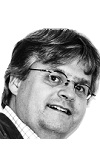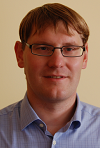Future Internet Symposium 2012: Towards a Smart and Sustainable Future Internet
We are pleased to announce that the 5th Future Internet Symposium will take
place in Vilnius, Lithuania, May 21-23, 2012, together with BIS 2012. We are looking
forward to meeting you in Vilnius!
Mission
The Future Internet Symposium (FIS) is a venue for European and international
researchers to share their work on next generation Internet technologies. FIS
is a scientific forum for the European Union's Future Internet Initiative, an
effort to align European research on the shared challenges presented by
Europe's increasingly Internet-based society and economy. FIS is intended to
bridge traditional disciplinary boundaries of Internet research, emphasizing
the use of machine understandable semantics to promote sharing of Internet
resources by diverse communities, devices, and organizational groupings.
An additional and equally important role for the Future Internet Symposium is
to be a home for the Future Internet community. In this respect the Symposium
will serve the interest of the emerging community and foster early-career
researchers (PhD students and fresh Post-docs) as they progress to become the
new leaders in this emerging field.
History
In March of 2008, the Bled declaration was
published and endorsed by over 70 European research project at the first
Future Internet Assembly led by the European Commission and attended both by
academic and political representatives. The Future Internet Symposium was
established following the first Assembly to provide a scientific forum for
researchers and practitioners to discuss the key issues in the areas of
networks, services, security and trust, multimedia and Internet of things,
related to the design of the Future Internet. The first Symposium was held in
Vienna, Austria. The positive concluding sentiment and high-calibre
publications resulting from the first Symposium proved the important role of
FIS in establishing a scientific community to support the political
directives of the Future Internet Assembly and the European Commission.
Keynote Speakers
Stephan Haller
SAP Research Zürich, Switzerland

Stephan Haller is a Development Architect responsible for Internet of Things Research at SAP Research in Zürich, Switzerland. He has been working on technologies relating to the Internet of Things for many years and is deeply involved in European research activities in this area, both in research projects and expert groups like the EU-China Expert Group on the Internet of Things
Stephan initiated RFID research & development activities at SAP in 1998, which led to the SAP Auto-ID Infrastructure. From 2004-2006, Stephan was driving RFID standardisation efforts as the co-chair of the Reader Protocol working group at EPCglobal., and also worked as technical consultant for RFID device integration on several RFID customer projects.
Before joining SAP in Tokyo in 1997, Stephan worked for 3 years as a research engineer at Matsushita Electric Works' Central Research Laboratory in Osaka, Japan, in the area of distributed information systems. He holds a master's degree in Computer Science from the Federal Institute of Technology (ETH) in Zürich, Switzerland.
Link to Web page:
-
Title of presentation: Future Internet: A Cloud full of Things-related Services and Processes [abstract]
Dr. Darius Silingas
No Magic Europe, Lithuania

Dr. Darius Silingas is a Head of Solutions Department at No Magic Europe, which develops popular UML-based modeling platform MagicDraw. Since 1998 he has been taking part in large-scale international software development projects as developer, architect, system analyst, and product manager. Since 2004, he has been working as a consultant helping organizations to adopt MagicDraw for efficient model-driven development. He has run over 150 training and consultancy sessions in 20 countries and spoke at premier industrial conferences such as Architecture and Design World, OOP, JAX, Code Generation, EuroSTAR, BPM Europe, Business Process Forum. Darius holds Ph.D. in Computer Science and is OMG Certified UML Professional and Expert in BPM. In addition to his active role in software industry, Darius works as a part-time Associate Professor at Vytautas Magnus University in Kaunas and gives invited lectures in a number of other universities. Currently, he also acts as a work package leader in FP7 funded project CHOReOS – Large Scale Service Choreographies for the Future Internet.
Link to Web page:
Homepage
Title of presentation: Model-Driven Service Choreographies for the Future Internet [abstract]
Abstracts
Stephan Haller: Future Internet: A Cloud full of Things-related Services and Processes
The Internet of Things is a much talked-about concept with an enormous potential for enterprises. Not only can business processes be better aligned with what happens in the real world and enable enterprises to respond more rapidly, more accurately and more adaptively, but it also brings changes in the way businesses collaborate and even the opportunity for novel business models. These potentials will only be realized in combination with services and Cloud approaches, forming thus the "Future Internet". The presentation will show how these concepts fit together using current examples, highlighting also some of the main challenges that need to be overcome.
Darius Silingas: Model-Driven Service Choreographies for the Future Internet
While service oriented architecture (SOA) is already a mainstream software technology, the Future Internet raises a number of challenges such as service heterogeneity, service governance, dynamic composition of services, service scalability, and user-centric service development that need to be addressed in research and implemented in industrial practice. The Future Internet should shift focus from service orchestration to service choreographies that may provide a better answer to the mentioned challenges. Model-driven development (MDD) is a technology that aims to handle software development at a higher abstraction level using models as the main development artifact. However, there is no agreement on how service-oriented systems should be modeled – multiple modeling languages such as BPMN 2.0, UML, SoaML, and SysML provide fragmented support but fail to cover the challenging aspects of service engineering in the Future Internet. In this keynote, we will present a visionary approach to model-driven service choreographies in the Future Internet powered by a combination of modeling standards, user-centric service engineering process, and integrated development and runtime environment. This approach is under research in ongoing FP7 project CHOReOS – Large Scale Choreographies for the Future Internet.
|
